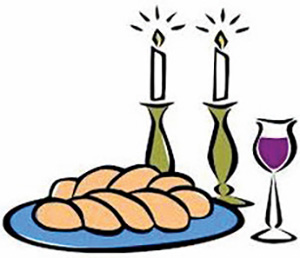
Another busy, stress-filled work week: work, school, children, laundry, cleaning, shopping, cooking. Thank goodness for Shabbos so we can finally rest.
Shabbos should not be thought of merely as a day of rest whereby we recharge our batteries for the work week that is to follow. That would make Shabbos subordinate to the weekdays and would make work the goal of our lives, rather than a means.
We say in our prayers on Friday night that Shabbos is the tachlit of the creation of the world. Tachlit means the conclusion: Shabbos is the conclusion of the six days of creation. But tachlit also means purpose: Shabbos is the purpose of the creation.
“If you turn away … from pursuing thy business on My holy day, and call the Shabbos a delight… and you shall honor it, not doing thy usual ways, nor pursuing your business, nor even speaking about them…” Isaiah 58:13.
Are we careful about what we discuss on Shabbos—even what we think about? “Do you know any lawyer who can help me with bar codes?” “Can you give me the name of the contractor who did your kitchen?” Singles spending Shabbos on Fire Island? On Shabbos afternoons do we find time to study Torah or is most of our time spent reading The Wall Street Journal, Civil War history books, steamy romance novels, taking fast exercise walks, or enjoying seudah shlishit with friends and beer, without a word of Torah?
Why is Shabbos considered a fulfillment of the ultimate purpose of the entire world’s creation? Shabbos is a day to be involved in spiritual, rather than physical, matters. The Shabbos day sanctifies and exalts all of our activities of the week by reminding us of the proper outlook we should have regarding all of our endeavors. That is what makes Shabbos the “purpose of the creation of heaven and earth.” On Shabbos it is not really that one is forbidden to work; it is that all is perfect—there is nothing to do.
Shabbos is a day when an entire nation sets aside its worldly pursuits to promote God’s honor, as we pray, “He ascends and sits on His Throne of Glory.”
All the mitzvot of the Torah share a common purpose. In fact, the Zohar refers to the 613 mitzvot as strategies aimed at the fulfillment of one particular mitzvah. What is the one particular mitzvah deemed so central that all other mitzvot are in effect the means to its fulfillment? The mitzvah is u’bo tidbak – “And to Him shall you cleave.” (Devarim 10:20) Shabbos is the quintessential manifestation of this d’veikut, this ability to cleave to God. Shabbos is the time of reveling in and strengthening the bond of love between Hashem and His people.
The Sfat Emet taught that Shabbos does not simply mean to rest. It means to return; everything returns to its root—we return to our place, free to be our true selves.
In the Shabbos Amidah, all three times, we say the words “ritzei b’m’nuchoteinu,” “be pleased with our rest.” The Etz Yosef writes that even though we may concentrate more on relaxation and good food than spiritual growth, we ask that you not be displeased with our human frailty. Bah! Not good enough.
As a child, Rav Soloveichik would often visit a Chasidic shteibel for seudah shlishit on Shabbos. The Chasidim would sing zemirot, songs, over and over again. It seemed they weren’t singing because they wanted to sing, but they were singing because they did not want Shabbos to leave. A chasid, dressed in a shtreimel and kapota, walked over to the child. “Don’t you recognize me? I am Yankel the porter. After nightfall, the boy asked the chasid, “When do we daven Maariv?” He replied, “Do you miss weekdays that much that you can’t wait to daven Maariv?” This story reflects the Jews’ yearning for holiness.
Through Shabbos, we put aside the acts of creation and the products of work and refocus on the value of the human being. This is achieved by spending the entire day of Shabbos on being, not doing. It is a proclamation, “I am—not I do.” If I could do nothing, I would still be me, a person of value. Thus, we reassert the primacy of human value and ethics.
Once, a poor man arrived at the home of Reb Shmelke of Nikolsburg; the poor tzadik could not even find a penny to give him. Looking about frantically, he spotted his wife’s gold wedding ring. Without a moment’s hesitation, he handed the ring to the beggar who was, of course, overjoyed. When his wife came home and learned what had occurred, she said, “Oh no! That poor man has no idea how expensive the ring is. Some crook may come along and buy the ring from him for far less than it’s worth.” Reb Shmelke immediately chased after the man, finally catching up to him, and told him the value of the ring.
The following Friday night, Reb Shmelke related the incident to his chasidim. “This is what God meant when he told Moshe to inform the Jewish people of the precious gift of the Shabbos. Moshe was to convey to them the pricelessness of Shabbos, that it is a day of limitless spiritual potential. Otherwise, they might trade it away for nothing more than a piece of kugel.
By Martin Polack
Martin Polack is a business analyst involved in Jewish adult education.








